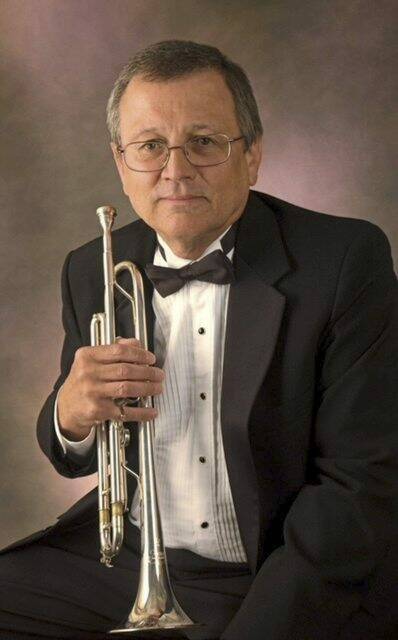https://staging.triblive.com/opinion/joseph-sabino-mistick-the-honor-of-playing-taps/
Joseph Sabino Mistick: The honor of playing taps

Ralph Dudgeon has played taps hundreds of times during his 73 years. Starting when he was 11 years old, he would climb onto the East McKeesport borough firetruck at the end of the Memorial Day parade for the ride to the cemetery where he and his father — Ralph the elder — played taps at the graves of local veterans.
When we were growing up, taps was sad and comforting at the same time. After World War II and the Korean War, our funerals often included military honors, and the playing of taps was the final graveside tribute. Even the most fidgety kid knew to settle while it was being played.
Over the years, Ralph has played taps in bitter cold snowstorms and 100-degree heat, whenever and wherever he was asked to play, never charging for the honor. It has been that way all his life.
“If there is a veteran that needs taps played at his funeral, I’ll do it,” he says.
And no one plays it better. Now a retired professor of music with a Ph.D. in musicology, Ralph performs with leading orchestras and ensembles. He continues to teach trumpet performance and write about the history of the trumpet and other brass instruments.
Ralph and I were in the junior high school orchestra together, where I strove to play second trumpet but rarely made it out of the third chair. Ralph was our star. He played a silver trumpet — literally and figuratively. From the time we were kids, he always knew his life’s work.
When I recently asked Ralph what the most difficult composition for trumpet is, he said that Bach’s Brandenburg Concerto No. 2 is among the most complex. Compared to that, I figured, taps must be easy, but my childhood friend set me straight.
“It is only 24 notes, but you must play them with exact spacing and at the right time,” he said. “It must be dignified in honor of the deceased, but still expressive. It must be technically perfect, but with emotion. It has to sing.
“And the descending notes at the end are hard to do, especially if you know the deceased. The last note should be held longer until it evaporates into the air. The Italians call it morendo, which means ‘dying away.’ ”
Ralph and his sons, Miles and Calder, felt that more than ever when all three played taps at the burial of their father and grandfather in 2004. The boys each repeated from afar the notes that Ralph played. It is the echo version of taps, a special tribute for their patriarch who was buried with full military honors.
The elder Ralph Dudgeon was a platoon leader and part of the second wave at Normandy on D-Day. Like many of the fathers from that era, he “never, ever talked about it” directly with Ralph.
But one time, when Ralph was touring and playing in French churches around Normandy with the BBC choir, his mom told him that his father was pleased. During the war, he had slept in many of the churches where Ralph was playing music.
It was another connection with his son, something that has meant a lot to both of them. And it continues. As Ralph says, “Now, when I play taps for a veteran, I still play it for my dad, too.”
Copyright ©2026— Trib Total Media, LLC (TribLIVE.com)
